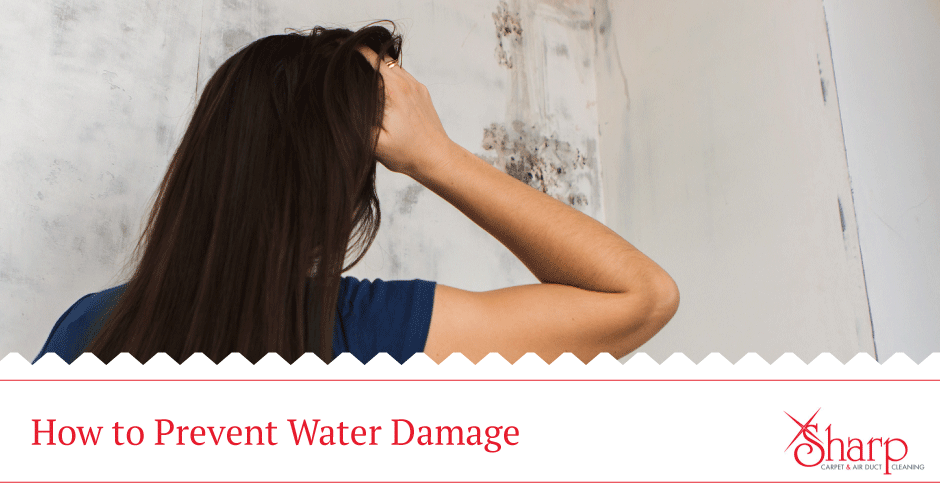Spring showers bring May flowers, but the rainy days ahead could also bring unexpected water damage to your home! Start preparing now to avoid water damage remediation later. Whether you’re hoping to ensure carpet protection in your finished basement or trying to protect items in storage in your unfinished space, there are a few simple ways to prepare for heavy rain!
Simple Ways to Prevent Water Damage
Check Your Roof
Don’t wait until rain is pouring down to worry about the integrity of your roof! Survey the top of your house for any missing shingles or heavy wear before the storms start. Keep an eye out for general sagging or signs of rot. Excessive leaves and other shrubbery can also create issues, so bring a trash bag with you to collect large piles of organic matter.
Remember the Chimney
Before you climb down from the roof, give your chimney a scan. Are there any noticeable gaps or cracks? Is the chimney cap secured? Mortar issues are difficult to notice, so be extra thorough when searching for loose or cracked areas.
Clean Your Gutters
While you have the ladder out, take a second to clean out your gutters! Whether you prefer to use a leaf blower or a hand scoop, you should check your gutters for clogs and debris at least once a year. If you have lots of expansive trees, plan to do this task biannually. Not sure how to clean your gutters? Check out some DIY options or consider hiring a professional.
Unclog Downspouts
Remember to inspect your downspouts too! Ensure water can efficiently leave your roof by cleaning downspouts and checking that they extend as least 10 feet from your home. Purchasing a splash block or adding a hinged elbow to downspouts are just two ways to maximizing drainage and protect the foundation of your home.
Plan Before You Plant
Before you add new blooms or bushes to your yard, survey the area where you’re planning to plant. Invasive roots can crack your home’s foundation as well as pipes, sprinkler lines, and your septic tank. Plan accordingly before you dig in!
Test Your Sump Pump
This pro tip could save your basement from flooding! An efficient sump pump is your biggest defense during a storm. To ensure you’re protecting carpet and your home’s foundation, check your pump at least once a year. Try plugging and unplugging your pump, as well as running water through it, to make sure it’s working correctly. Follow these instructions on how to test your sump pump yourself or contact a plumber.
Inspect Doors and Windows
Visually inspect the area around doors and windows to make sure they seal properly. Be on the watch for any caulking that is peeling or bubbling. Warped paint and discoloration surrounding doors and windows are often signs that leaking is already occurring, and you could be at risk for greater water damage in the future.
What to Do if Flooding Occurs
Even with the most meticulous of planning, sometimes homes are no match for the elements. If your basement has flooded, act as quickly as possible to move excess water out of your home. If you’re wondering how to prevent mold after water damage or minimize damage to your home’s carpet and foundation, you should contact a professional immediately. Sharp offers water damage restoration services in Omaha, Iowa, and surrounding areas. Contact us as soon as flooding occurs to best protect your carpet and furniture from damage.

